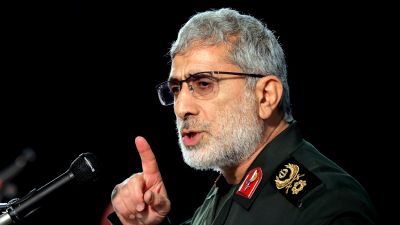Iran admits plans to step up uranium enrichment by 20%

Iran plans to step up plans to enrich uranium by up to 20% - a technical step away from weapons-grade levels.
Iran’s state-run IRNA news agency acknowledged the step after news leaked concerning a letter it sent to the International Atomic Energy Agency (IAEA), the UN's atomic watchdog.
If Iran does go ahead with its plan, it would be the largest breach of the international nuclear deal so far.
Russia’s representative to the IAEA similarly acknowledged Iran’s letter on Twitter, though the agency did not immediately respond to a request for comment.
The move comes amid heightened tensions between Iran and the US in the waning days of the administration of President Donald Trump, who unilaterally withdrew America from Tehran’s nuclear deal in 2018.
That set in motion an escalating series of incidents capped by a US drone strike killing a top Iranian general in Baghdad a year ago. The anniversary of that strike this Sunday has American officials now worried about possible retaliation by Iran.
The decision comes after parliament passed a bill, later approved by a constitutional watchdog, aimed at hiking enrichment to pressure Europe into providing sanctions relief.
Mikhail Ulyanov, Russia’s permanent representative to the Vienna-based IAEA, wrote on Twitter that Tehran planned to resume enrichment up to 20% after the Wall Street Journal broke the news.
IRNA later reported Mr Ulyanov’s comments, linking the decision to the parliament bill aimed at restarting higher enrichment at Iran’s underground Fordo facility.
Since the deal’s collapse, Iran has resumed enrichment at Fordo, near the holy Shiite city of Qom, some 55 miles south-west of Tehran.
Shielded by mountains, Fordo is ringed by anti-aircraft guns and other fortifications. It is about the size of a football field, large enough to house 3,000 centrifuges, but small and hardened enough to lead US officials to suspect it had a military purpose when they exposed the site publicly in 2009.
As of now, Iran is enriching uranium up to 4.5%, in violation of the accord’s limit of 3.67%. Experts say Iran now has enough low-enriched uranium stockpiled for at least two nuclear weapons, if it chose to pursue them. Iran long has maintained its nuclear program is peaceful.
Iran separately has begun construction on a new site at its underground nuclear facility at Fordo, according to satellite photos obtained by The Associated Press in December.